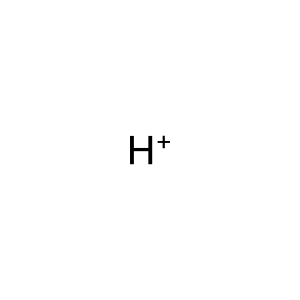Reaction: Defective SLC22A18 does not exchange extracellular organic cations for cytosolic H+
The human gene SLC22A18 (aka TSSC5) encodes organic cation transporter-like protein 2 (ORCTL2). It is expressed at high levels in kidney, liver and colon and at lower levels in heart, brain and lung. ORCTL2 can transport organic cations such as chloroquine and quinidine with the antiport of protons.
Mutations and/or reduced expression of SLC22A18 have been found in certain tumors such as lung cancer (LNCR; MIM:211980) (Lee et al. 1998) and embryonal rhabdomyosarcoma 1 (RMSE1; MIM:268210) (Schwienbacher et al. 1998). How SLC22A18 might be involved in growth regulation is poorly understood. There is speculation that it may be involved in resistance to chemotherapy drugs and/or in the export of genotoxic substances whose retention may increase the risk of tumor formation. A mutation implicated in LNCR is S233F (Lee et al. 1998). A mutation implicated in RMSE1 is R286H (Schwienbacher et al. 1998; paper incorrectly deciphered it to be a C to R change).
Mutations and/or reduced expression of SLC22A18 have been found in certain tumors such as lung cancer (LNCR; MIM:211980) (Lee et al. 1998) and embryonal rhabdomyosarcoma 1 (RMSE1; MIM:268210) (Schwienbacher et al. 1998). How SLC22A18 might be involved in growth regulation is poorly understood. There is speculation that it may be involved in resistance to chemotherapy drugs and/or in the export of genotoxic substances whose retention may increase the risk of tumor formation. A mutation implicated in LNCR is S233F (Lee et al. 1998). A mutation implicated in RMSE1 is R286H (Schwienbacher et al. 1998; paper incorrectly deciphered it to be a C to R change).
Reaction - small molecule participants:
H+ [cytosol]
Reactome.org reaction link: R-HSA-5625574
======
Reaction input - small molecules:
hydron
Reaction output - small molecules:
Reactome.org link: R-HSA-5625574

